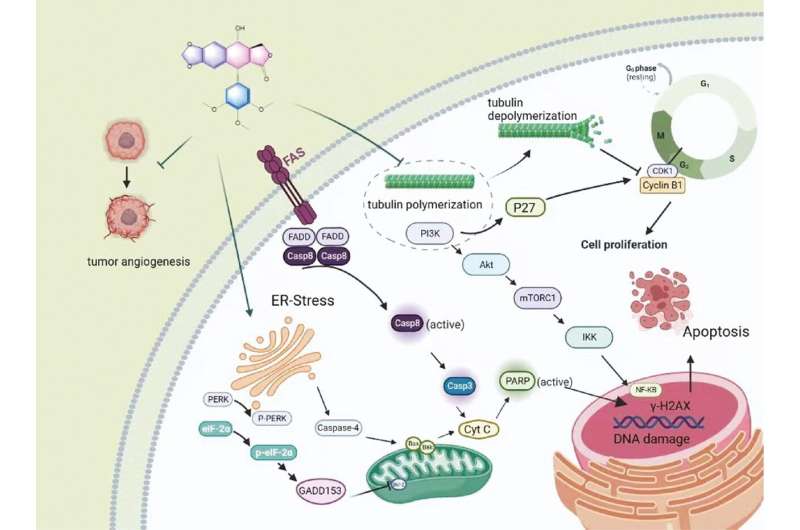Podophyllotoxin (PPT), an aryltetralin-type lignan isolated from Podophyllum species, exhibits a wide range of biologic and pharmacologic activities, and mainly serves as an antiviral agent or antitumor drug in clinical applications.
However, the therapeutic potential of PPT has been hindered due to its detrimental systemic toxicity, poor solubility, and bioavailability. Nanoparticles, which preferentially accumulate in tumors through enhanced permeability and retention effects, have become useful tools for targeted drug delivery, thus securing a niche in cancer therapies.
The nano-based drug delivery platform has been introduced to PPT delivery for the purpose of improved solubility, enhanced efficacy, and reduced toxicity. For decades, extensive efforts have been dedicated to designing and developing various PPT delivery systems to mitigate undesirable toxicity and expand clinical applicability.
The authors of a new article published in Acta Materia Medica review the latest achievements in PPT delivery patterns and pharmacodynamic concerns with the expectation of shedding light on future research and potential applications of PPT.
Provided by
Compuscript Ltd


